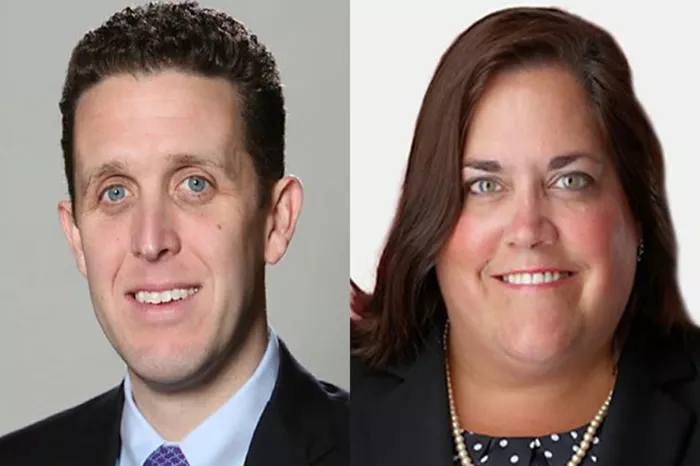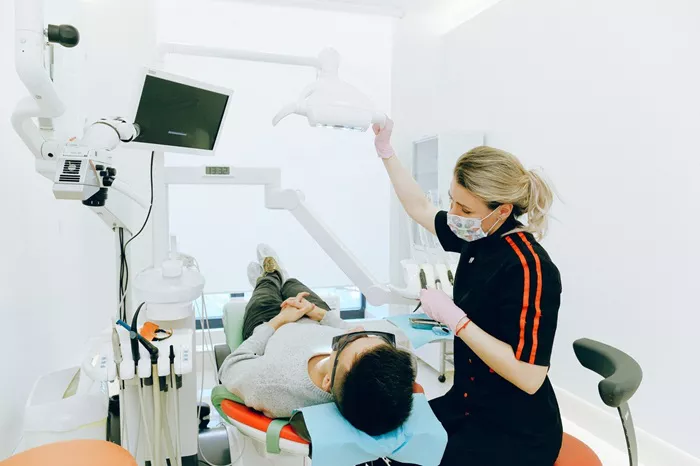Private health insurance is a valuable tool for managing healthcare expenses. However, it doesn’t cover everything. Understanding the limitations of private health insurance can help you plan for out-of-pocket costs. This article will explore what private health insurance typically does not cover and offer insights into managing these exclusions.
Exclusions in Private Health Insurance
1. Cosmetic Procedures
Cosmetic procedures are generally not covered by private health insurance. These include surgeries or treatments that are not medically necessary but are performed to enhance appearance. Examples include facelifts, breast augmentations, and liposuction. Exceptions may occur if the procedure is necessary due to injury or a congenital defect.
2. Elective Procedures
Elective procedures, which are non-essential surgeries or treatments, often lack coverage. These procedures are scheduled in advance and are not urgent. Examples include varicose vein treatments and elective joint replacement surgeries. Coverage may be considered if a medical necessity is demonstrated.
3. Alternative Therapies
Acupuncture
Acupuncture is often excluded from private health insurance coverage. This traditional Chinese medicine technique involves inserting needles into the skin to stimulate specific points on the body. While some insurers offer limited coverage, many consider it an alternative therapy and exclude it from standard plans.
Chiropractic Care
Chiropractic care, which focuses on diagnosing and treating mechanical disorders of the musculoskeletal system, is another common exclusion. Some plans may offer limited coverage, but extensive chiropractic treatments usually require out-of-pocket payment.
4. Homeopathy
Homeopathy, a treatment method based on the use of highly diluted substances, is typically not covered by private health insurance. This alternative therapy lacks scientific evidence supporting its effectiveness, leading insurers to exclude it from coverage.
Dental and Vision Care
Routine Dental Care
Routine dental care, including cleanings, fillings, and X-rays, is usually not covered by standard health insurance plans. Separate dental insurance is often required to cover these services. Dental insurance may also have its own exclusions and limitations.
Orthodontics
Orthodontic treatments, such as braces, are generally excluded from private health insurance. These services are considered elective and are covered under specialized dental plans. Coverage may be available for children but often requires additional premiums.
Vision Care
Routine vision care, including eye exams, glasses, and contact lenses, is typically not covered by private health insurance. Separate vision insurance is necessary to cover these expenses. Some plans may offer discounts or partial coverage for these services.
Hearing Aids
Hearing Tests
Hearing tests may be covered by some private health insurance plans, but this is not universal. Hearing aids, however, are commonly excluded. These devices are often considered elective or non-essential, leading to out-of-pocket expenses for those who need them.
Hearing Aid Maintenance
Maintenance and replacement costs for hearing aids are generally not covered. This includes batteries, repairs, and adjustments. Patients should be prepared to cover these costs independently.
Infertility Treatments
In Vitro Fertilization
In vitro fertilization (IVF) is a common exclusion in private health insurance. This fertility treatment involves combining eggs and sperm outside the body and implanting the embryo in the uterus. Coverage for IVF varies widely, with many plans excluding it due to high costs.
Artificial Insemination
Artificial insemination, another fertility treatment, is typically not covered. This procedure involves directly inserting sperm into a woman’s uterus. Like IVF, coverage depends on the insurance plan and state regulations, with many plans excluding it.
Fertility Medications
Fertility medications are often excluded from private health insurance. These drugs stimulate ovulation or improve sperm quality. Patients seeking fertility treatments may face significant out-of-pocket expenses for these medications.
Experimental Treatments
Clinical Trials
Participation in clinical trials is usually not covered by private health insurance. These trials test new treatments and medications, and insurers often consider them experimental. Some plans may offer limited coverage, but patients typically need to find other funding sources.
Experimental Drugs
Experimental drugs, not yet approved by regulatory agencies, are another common exclusion. These medications are still undergoing testing for safety and efficacy. Patients seeking experimental treatments may need to enroll in clinical trials or pay out-of-pocket.
Unapproved Medical Devices
Medical devices not yet approved by regulatory bodies are generally excluded from coverage. This includes devices still in the experimental stage or those without proven effectiveness. Patients requiring these devices must bear the costs independently.
Long-Term Care
Nursing Home Care
Long-term nursing home care is typically not covered by private health insurance. This type of care provides assistance with daily activities and medical needs for extended periods. Long-term care insurance is often necessary to cover these expenses.
Assisted Living
Assisted living facilities, which provide housing and personal care services, are also excluded. These facilities offer support with daily activities but do not provide extensive medical care. Patients usually need separate insurance or personal funds to cover these costs.
Home Health Care
Home health care, involving medical and personal care services at home, is generally not covered. This includes services like nursing care, physical therapy, and help with daily activities. Long-term care insurance can help cover these expenses.
Cosmetic Dentistry
Teeth Whitening
Teeth whitening, a popular cosmetic dental procedure, is typically excluded from private health insurance. This treatment is considered elective and not medically necessary, requiring patients to pay out-of-pocket.
Veneers
Dental veneers, thin coverings placed over the front of teeth to improve appearance, are also not covered. These procedures are considered cosmetic and are not included in standard dental insurance plans.
Cosmetic Implants
Dental implants for cosmetic purposes, such as replacing missing teeth for aesthetic reasons, are generally excluded. Implants deemed medically necessary may be covered, but cosmetic ones are not.
Lifestyle-Related Treatments
Weight Loss Surgery
Weight loss surgeries, such as gastric bypass or lap band procedures, are often excluded unless deemed medically necessary. Insurance plans may cover these surgeries for patients with severe obesity-related health issues, but not for cosmetic reasons.
Smoking Cessation Programs
Smoking cessation programs, including counseling and medications, are typically not covered. While some plans offer limited coverage, many exclude these services due to their classification as lifestyle changes.
Fitness Programs
Fitness programs, gym memberships, and personal training are generally not covered. These services are considered non-medical and elective, requiring patients to pay out-of-pocket.
Non-Essential Services
Travel Vaccinations
Vaccinations required for international travel are usually not covered. These vaccines protect against diseases not common in the patient’s home country. Patients should be prepared to cover the cost of these vaccinations.
Cosmetic Dermatology
Cosmetic dermatology procedures, such as Botox injections or laser treatments for skin appearance, are typically excluded. These treatments are considered elective and not medically necessary.
Non-Medical Counseling
Non-medical counseling services, including career or financial counseling, are not covered. Health insurance focuses on medical and mental health treatments, excluding these types of services.
Alternative and Complementary Medicine
Naturopathy
Naturopathy, a form of alternative medicine using natural remedies, is usually not covered. This includes treatments like herbal medicine, acupuncture, and massage therapy.
Ayurveda
Ayurveda, a traditional Indian system of medicine, is generally excluded. This holistic approach uses diet, herbal treatments, and yoga to maintain health. Insurance plans typically do not cover these alternative treatments.
Traditional Chinese Medicine
Traditional Chinese Medicine (TCM), including acupuncture, herbal medicine, and tai chi, is often not covered. These treatments are considered alternative and fall outside standard health insurance plans.
see also: How Does Amazon Health Insurance Work
Vision-Related Exclusions
LASIK Surgery
LASIK surgery, a procedure to correct vision problems, is typically excluded from private health insurance. This elective surgery improves vision but is not considered medically necessary.
Prescription Sunglasses
Prescription sunglasses, while useful for protecting eyes from UV rays, are generally not covered. These items are considered non-essential and fall outside standard vision insurance plans.
Non-Prescription Eyewear
Non-prescription eyewear, including fashion glasses and non-prescription sunglasses, is not covered. These items are considered cosmetic and not necessary for medical treatment.
Managing Exclusions
Supplemental Insurance
Purchasing supplemental insurance can help cover exclusions. These policies offer additional coverage for services not included in standard health insurance. Examples include dental, vision, and long-term care insurance.
Health Savings Accounts
Health Savings Accounts (HSAs) allow individuals to save pre-tax money for medical expenses. Funds in an HSA can be used for services not covered by insurance, such as dental care or alternative treatments.
Out-of-Pocket Planning
Planning for out-of-pocket expenses is crucial. Budgeting for potential costs and saving money for uncovered services can help manage financial strain. Understanding what is excluded from your insurance plan allows for better financial planning.
Seeking Provider Discounts
Some healthcare providers offer discounts for services not covered by insurance. Negotiating prices or asking for a payment plan can help manage costs. Researching providers and comparing prices can also lead to savings.
Utilizing Community Resources
Community resources, such as free clinics or support groups, can provide assistance for excluded services. These resources offer low-cost or free care for certain medical needs. Researching available resources in your area can provide additional support.
Exploring Alternative Coverage Options
Exploring alternative coverage options, such as employer benefits or government programs, can help cover excluded services. Some employers offer wellness programs or subsidies for excluded treatments. Government programs may provide additional support for certain populations.
Conclusion
Understanding what private health insurance does not cover is essential for managing your healthcare needs. While insurance provides valuable protection, it has limitations. By knowing these exclusions and exploring alternative options, you can plan for out-of-pocket expenses and ensure comprehensive care. Supplemental insurance, HSAs, and community resources are valuable tools for addressing these gaps. Taking proactive steps to manage uncovered services allows for better financial planning and access to necessary treatments.






















